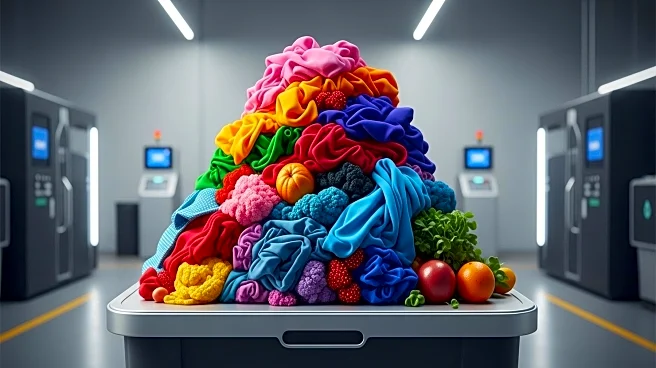What is the story about?
What's Happening?
The European Parliament is set to implement a new law aimed at reducing both food and textile waste, with a particular focus on the environmental impact of fast fashion. This legislation revises a 2008 directive and introduces EU-wide waste reduction efforts for the textile industry for the first time. The law includes a 'polluter pays' principle, holding producers financially responsible for the collection, sorting, and recycling of clothing. Additionally, the law sets binding targets for food waste reduction, requiring member states to cut food waste by 30% from distribution, catering, and households by 2030, and by 10% from food processing and manufacturing.
Why It's Important?
This legislation is significant as it addresses the growing environmental concerns associated with fast fashion and food waste. The textile industry, known for its high volume and low-cost production cycles, contributes significantly to environmental degradation. By imposing financial responsibilities on producers, the law aims to incentivize sustainable practices. The food waste reduction targets are crucial in tackling the substantial amount of waste generated at the household level, which accounts for over 50% of food waste. These measures could lead to more sustainable consumption patterns and reduce the environmental footprint of both industries.
What's Next?
Member states are expected to implement prevention programs tailored to their local agri-food sectors to meet the food waste reduction targets. These initiatives may include selling 'ugly' fruits and vegetables, improving food labeling, and donating unsold but consumable food to charities. The textile industry will need to adapt to the new financial responsibilities, potentially leading to changes in production and recycling practices. The law's impact on fast fashion could prompt further investigations into the social and environmental excesses of low-cost garment production.

















